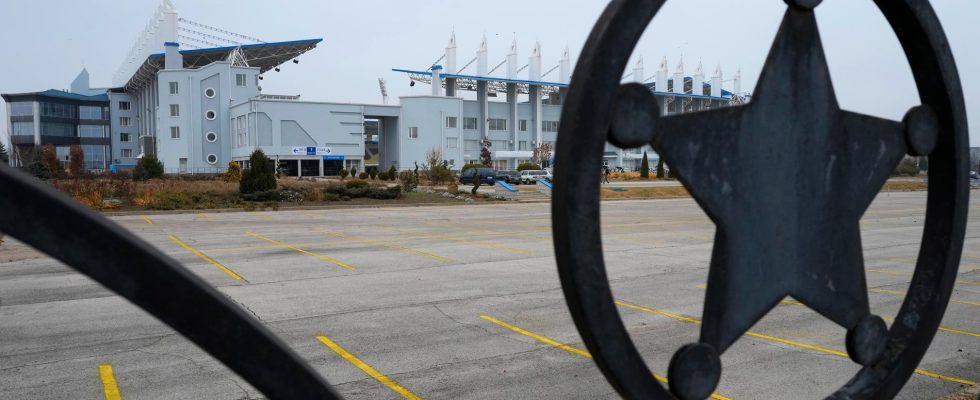Moldovan police have launched a murder investigation after an opposition leader in the Russian-backed breakaway region of Transnistria was found shot dead in his home.
Oleg Khorzhan was the leader of the Communist Party of Transnistria.
Moldova’s reintegration agency strongly condemns “criminal acts that threaten people’s lives” and has offered its condolences to the politician’s family.
The organization Promo-lex, which works to protect human rights in the region, says Khorzhan was “one of the few public figures who had the courage to fight for basic rights and freedoms” in Transnistria.
The organization also calls on foreign diplomatic missions in the country to monitor and condemn “the systemic persecution of activists” in Transnistria.
Khorzhan was sentenced in 2018 to just over four years in prison after he was accused of assaulting a police officer in the capital Tiraspol a few days after he organized a protest in the city.
His party called the verdict “absurd” and accused the Tiraspol authorities of political persecution.
Since Russia launched its war of aggression against Ukraine, Moldova’s leaders have repeatedly accused Russia of trying to destabilize the country, which was a Soviet republic until 1991.
FACT Transnistria
The breakaway republic of Transnistria is a self-governing strip of land along Moldova’s eastern border with Ukraine. The surface area is about the same size as Gästrikland.
The name Transnistria comes from the fact that the area is “on the other side of the Dniester”, a river that separates the area from the rest of Moldova.
After World War II, Transnistria was incorporated into the Soviet republic of Moldova. When the Soviet Union collapsed, there was some desire among the non-Romanian-speaking residents of the sub-republic to maintain ties to Moscow, rather than strengthen them with Romania. Transnistria declared itself a separate Soviet republic and in 1992 a short war was fought with at least 600-700 casualties. The Russian army entered the Transnistrian side before ending with a ceasefire.
Since then, Transnistria functions in practice as a self-governing state with Russian support and a Russian troop presence, although it is internationally recognized only as part of Moldova.
The largest city is called Tiraspol. The flag and coat of arms are still decorated with the hammer and sickle.
Read more
